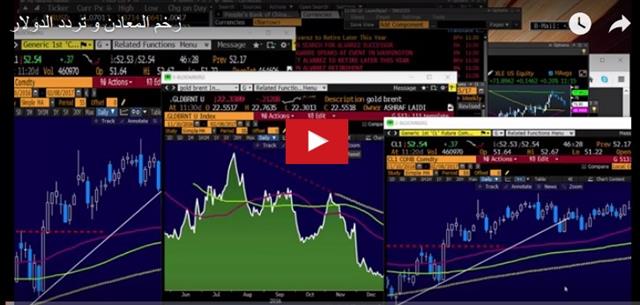From Trump Optimism to Uncertainty
Congress is still Congress. The election of an all-Republican slate sparked hopes of quick and effective change in the United States but there are already signs that the agenda has stalled. The yen was the top performer on Wednesdaywhile the New Zealand dollar fell sharply after the RBNZ decision/statement. A new Premium trade in commodities has been added with charts & notes.
زخم المعادن و تردد الدولار (فيديو للمشتركين فقط)
Trump Stalled or Backtrack?
Throughout the election race and into his first days in office, Donald Trump promised a quick repeal and replacement of Obamacare. This week, he said change was “very complicated” and said it could take until next year. That shift is symptomatic of the mood that's settling over markets. Comprehensive tax reform has also been pushed back and the only substantive changes that Trump has tried – immigration – is tied up in the courts. Democrats are fighting many of his cabinet nominations.In a way, a lack of change is good for markets. That's essentially the paradigm of the past six years. It's also disappointing because the market-positive forces on stimulus, regulation and reform are more likely to fall flat. It shows how dysfunctional the system is even when one side has almost all the power.
The subtle shift in tone is infecting global central bankers. Perhaps sensing an opportunity, they are pushing back against US financial deregulation.
On the economy, the optimism about US growth and fiscal stimulus has been tempered. The RBNZ statement talks more about global uncertainty than a higher-inflation paradigm.The statement sent the kiwi lower because there was none of the hawkishness that crept into the central bank vocabulary from November through January. Wheeler spelled it out by saying that the market got ahead of itself in pricing in a 2017 rate hike. Overall, he said the likelihood of rates moving up or down was equal.
The same shift is unfolding in trading. The bond market is the clearest example. Five-year yields fell to the lowest since early December despite a weak auction. If the stock market begins to follows suit, then uncertainty could quickly turn to frustration and broad risk aversion.
Latest IMTs
-
Trade Already in Profit
by Ashraf Laidi | Feb 17, 2026 18:16
-
I will go LIVE in 10 mins
by Ashraf Laidi | Feb 16, 2026 21:49
-
3 Stocks Against Nasdaq
by Ashraf Laidi | Feb 13, 2026 17:46
-
Revisiting Gold Bugs Ratio
by Ashraf Laidi | Feb 13, 2026 11:10
-
Typical Trading Errors
by Ashraf Laidi | Feb 12, 2026 10:04









